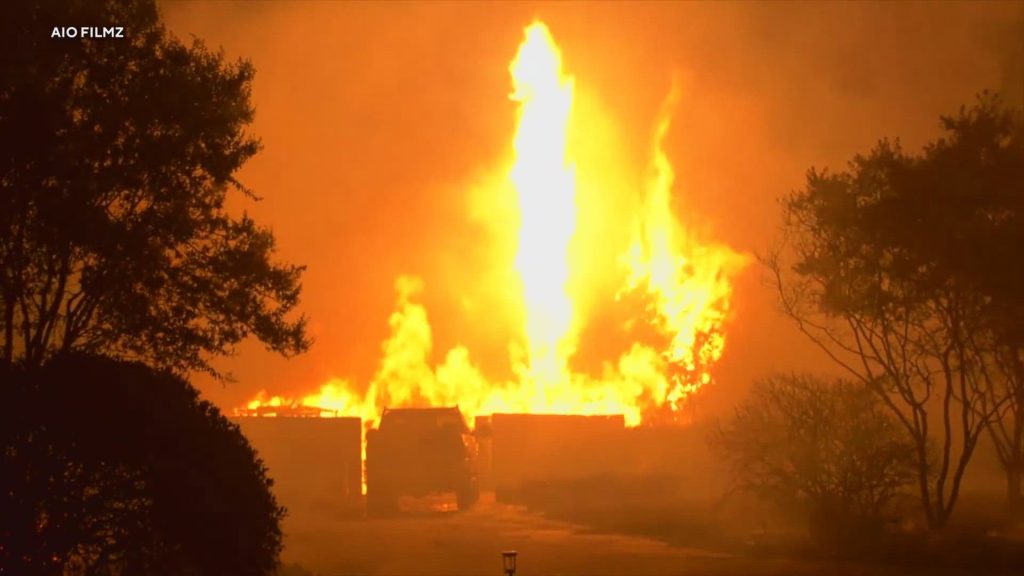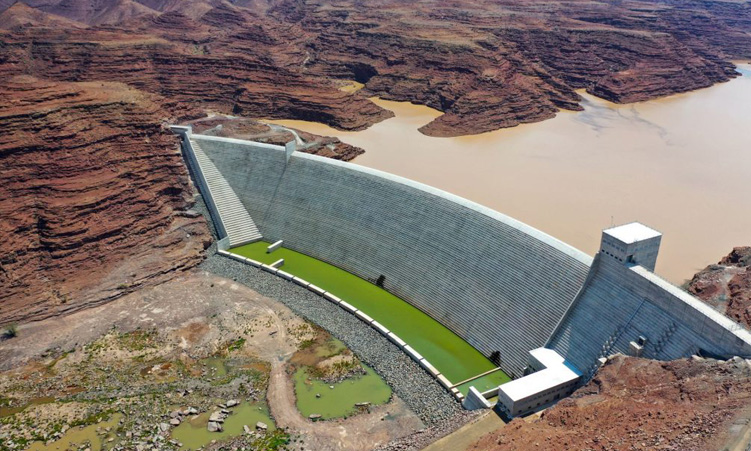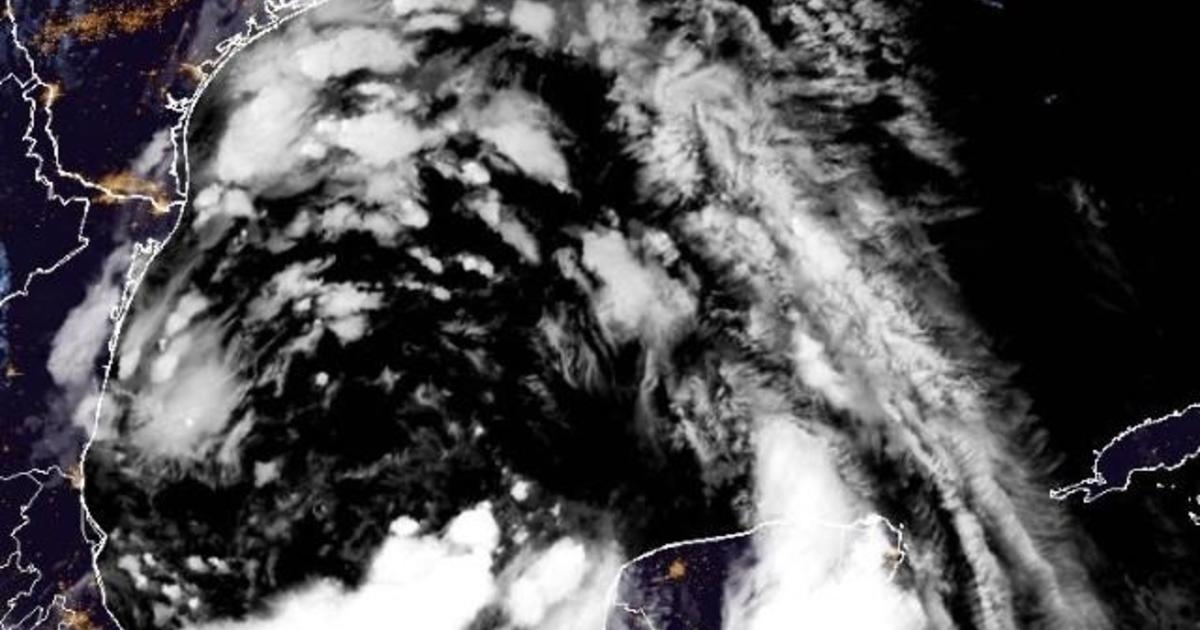Thousands of firefighters battled a wildfire in northern California on Saturday that rapidly expanded, burning an area roughly the size of Los Angeles. This is one of several blazes ravaging the western United States and Canada amid dry, hot, and windy conditions.
Cooler temperatures forecasted for the region could help slow the Park Fire, the largest blaze in California this year. The Park Fire’s intensity and rapid spread have led fire officials to compare it to the devastating Camp Fire, which burned out of control in nearby Paradise in 2018, killing 85 people and destroying 11,000 homes.
More than 130 structures have been destroyed by the Park Fire so far, with thousands more at risk. Evacuations were ordered in four counties: Butte, Plumas, Tehama, and Shasta.
The fire covered 480 square miles (1,243 square kilometers) by Friday night and was moving quickly north and east after igniting on Wednesday. Authorities said a man pushed a burning car into a gully in Chico, causing the fire, and then blended in with others fleeing the scene.
“There’s a tremendous amount of fuel out there and it’s going to continue with this rapid pace,” said Cal Fire incident commander Billy See at a briefing. The fire was advancing up to 8 square miles (21 square kilometers) an hour on Friday afternoon.
Officials at Lassen Volcanic National Park evacuated staff from Mineral, a community of about 120 people, as the fire moved north toward Highway 36 and east toward the park.
Elsewhere in the U.S. West and Canada, communities faced similar threats. A fast-moving blaze sparked by lightning forced people to flee on fire-ringed roads in rural Idaho, while a new blaze caused evacuations in eastern Washington.
In eastern Oregon, a pilot was found dead in a small air tanker plane that crashed while fighting one of the many wildfires spreading across several Western states.
More than 110 active fires covering 2,800 square miles (7,250 square kilometers) were burning in the U.S. on Friday, according to the National Interagency Fire Center. Some were caused by weather conditions, with climate change increasing the frequency of lightning strikes as the region endures record heat and bone-dry conditions.
A fire in eastern Washington destroyed three homes and five outbuildings near the community of Tyler, which was evacuated Friday afternoon, said Ryan Rodruck, spokesperson with the Washington Department of Natural Resources. Firefighters contained the Columbia Basin fire in Spokane County to about half a square mile (1.3 square km).
In Chico, California, Carli Parker is one of hundreds who fled their homes as the Park Fire approached. Parker decided to leave her Forest Ranch residence with her family when the fire began burning across the street. She has previously been forced out of two homes by fire and had little hope that her residence would remain unscathed.
“I think I felt like I was in danger because the police had come to our house because we had signed up for early evacuation warnings, and they were running to their vehicle after telling us that we need to self-evacuate and they wouldn’t come back,” said Parker, a mother of five.
Ronnie Dean Stout, 42, of Chico, was arrested early Thursday in connection with the blaze and held without bail pending a Monday arraignment, officials said. There was no reply to an email to the district attorney asking whether the suspect had legal representation or someone who could comment on his behalf.
Amanda Brown, who lives in the same community where Stout was arrested, was stunned that someone would set a fire in a region where the memories of the devastation in Paradise are still fresh.
“That anyone could deliberately put our community through that again is incredibly cruel. I don’t understand it,” said the 61-year-old Brown, who’s about a mile (1.6 kilometers) from the fire but had not been ordered to evacuate.
Elsewhere, fire crews were making progress on another complex of fires burning in the Plumas National Forest near the California-Nevada line, said Forest Service spokesperson Adrienne Freeman. Most of the 1,000 residents evacuated by the lightning-sparked Gold Complex fires were returning home Friday. Some crews were peeling off to help battle the Park Fire.
“As evidenced by the (Park) fire to the West, some of these fires are just absolutely exploding and burning at rates of spread that it is just hard to even imagine,” said Tim Hike, Forest Service incident commander of the Gold Complex fire about 50 miles (80 km) northwest of Reno.
Forest Ranch evacuee Sherry Alpers fled with her 12 small dogs and decided to stay in her car outside a Red Cross shelter in Chico after learning that animals would not be allowed inside. She ruled out traveling to another shelter after learning the dogs would be kept in cages, since her dogs have always roamed free at her home.
Alpers said she doesn’t know whether the fire spared her home or not, but she said that as long as her dogs are safe, she doesn’t care about the material things.
“I’m kind of worried, but not that much,” she said. “If it’s gone, it’s gone.”
Brian Bowles was also staying in his car outside the shelter with his dog Diamon. He said he doesn’t know if his mobile home is still standing.
Bowles said he only has a $100 gift card he received from United Way, which handed them out to evacuees. He was faced with the prospect of staying in his car, or trying to find a motel room.
The most damage so far has been to the Canadian Rockies’ Jasper National Park, where a fast-moving wildfire forced 25,000 people to flee and devastated the park’s namesake town, a World Heritage site.
Oregon still has the biggest active blaze in the United States, the Durkee Fire, which combined with the Cow Fire to burn nearly 630 square miles (1,630 square kilometers). It remains unpredictable and was only 20% contained Friday, according to the government website InciWeb. In Oregon, a pilot died after his single-engine air tanker went down in forested terrain while fighting the Falls Fire near the town of Seneca and the Malheur National Forest.
In Idaho, lightning strikes sparked fast-moving wildfires and the evacuation of multiple communities. The fires were burning on about 31 square miles (80 square kilometers) Friday afternoon.
Juliaetta, about 27 miles (43 kilometers) southeast of the University of Idaho’s campus in Moscow, was evacuated Thursday just ahead of roaring fires, as were several other communities.
The National Interagency Fire Center said more than 27,000 fires have burned more than 5,800 square miles (15,000 square kilometers) in the U.S. this year, and in Canada, more than 8,000 square miles (22,800 square kilometers) have burned in more than 3,700 fires so far, according to its National Wildland Fire Situation Report issued Wednesday.











Temp mail I truly appreciate your technique of writing a blog. I added it to my bookmark site list and will